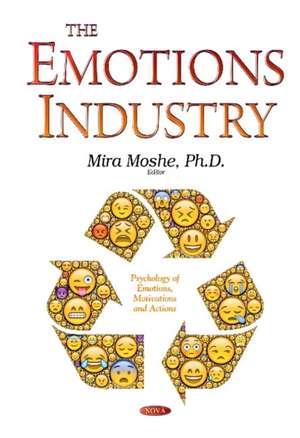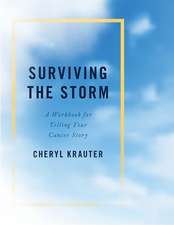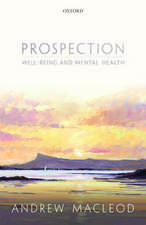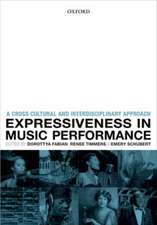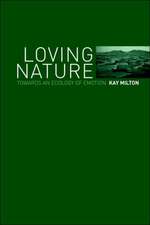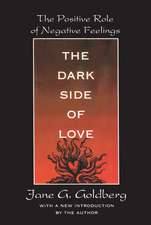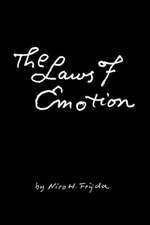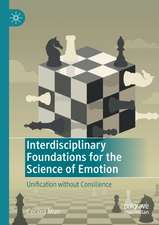Emotions Industry
Editat de Mira Mosheen Limba Engleză Hardback – 31 aug 2014
Preț: 1061.97 lei
Preț vechi: 1452.77 lei
-27% Nou
Puncte Express: 1593
Preț estimativ în valută:
203.20€ • 212.16$ • 168.18£
203.20€ • 212.16$ • 168.18£
Carte disponibilă
Livrare economică 14-28 martie
Preluare comenzi: 021 569.72.76
Specificații
ISBN-13: 9781633215665
ISBN-10: 1633215660
Pagini: 325
Dimensiuni: 258 x 182 x 20 mm
Greutate: 0.68 kg
Editura: Nova Science Publishers Inc
ISBN-10: 1633215660
Pagini: 325
Dimensiuni: 258 x 182 x 20 mm
Greutate: 0.68 kg
Editura: Nova Science Publishers Inc
Cuprins
Table of Contents:
Introduction: A Profile of the Emotions Industry pp.vii-xv
SECTION I: THE EMOTIONS INDUSTRY - THE CONSTRUCTION OF A ROMANTIC PRODUCTION LINE pp.1-2
Chapter 1: Cellular Branding: The Search for Love via the Emotions Industry
(Mira Moshe, Ariel University, Israel)pp.3-24
Chapter 2: Romance Tourism: The Ultimate Emotions Industry
(Julia Meszaros, Florida International University, FL, US)pp.25-42
Chapter 3: What's The Fighting All About? A Comparison of Reasons for Romantic Conflicts on Television Programs and in the Real World
(Amir Hetsroni and Abira Reizer, Ariel University, Israel)pp.43-58
SECTION II: THE EMOTIONS INDUSTRY – FROM PRODUCTION TO CONSUMPTION OF EMOTIONAL CONTENT pp.59-60
Chapter 4: “The Journalism of Astonishment”: Engaging the Audience Emotionally through Amateur Visuals
(Mervi Pantti, Department of Social Research, Media and Communication Studies, University of Helsinki, Finland)pp.61-78
Chapter 5: The Emotions Industry in Italy: You’ve Got Mail
(Mariolina Graziosi, University of Milan, Italy)pp.79-94
Chapter 6: Eliciting “Kosher Emotions” in Ultra-Orthodox Jewish Women's Film
(Matan Aharoni, Department of Communications, University of Haifa, Israel)pp.95-116
SECTION III: THE EMOTIONS INDUSTRY – MEDIA CONSUMERS’ CONFRONTATION WITH FEAR AND DEATH pp.117-118
Chapter 7: Flirting With Death: Writing As a Mode of Being-In-The-World on an On-Line Suicide Support Forum
(Shirly Bar-Lev, School of Engineering, Ruppin Academic Center, Israel)pp.119-136
Chapter 8: “I Was Really Scared”: A Cross-Cultural Comparison of Reconstructing Childhood’s Fearful Viewing Experiences
(Dafna Lemish and Michal Alon-Tirosh, College of Mass Communication and Media Arts, Southern Illinois University, IL, US and others)pp.137-158
SECTION IV: THE EMOTIONS INDUSTRY - THE POLITICS OF EMOTIONS pp.159-160
Chapter 9: Spectacles for Everyone: Emotions and Politics in Argentina, 2010-2013
(Adrián Scribano and Mira Moshe, National Council of Scientific and
Technological Research (CONICET), Argentina and Ariel University, Israel)pp.161-180
Chapter 10: The Emotions Industry in Online Romanian Politics: Selling Leadership and Trust during the 2012 Parliamentary Campaign
(Florenta Toader, National University of Political Studies and Public Administration, Bucharest, Romania)pp.181-198
SECTION V: THE EMOTIONS INDUSTRY - FASHION AND FASHIONABLE SELF-EXPOSURE pp.199-200
Chapter 11: The Emotions Industry: Celebrities and Self-Confession As a Marketing Strategy
(Mira Moshe, Ariel University, Israel)pp.201-220
Chapter 12: The Emotions Industry: Emotions in Fame
(Samita Nandy, Centre for Media and Celebrity Studies (CMCS), Canada)pp.221-234
Chapter 13: Simmel’s Theory of Fashion As a Hypothesis of Affective Capitalism
(Juhana Venäläinen, University of Eastern Finland, School of Humanities, Finland)pp.235-250
